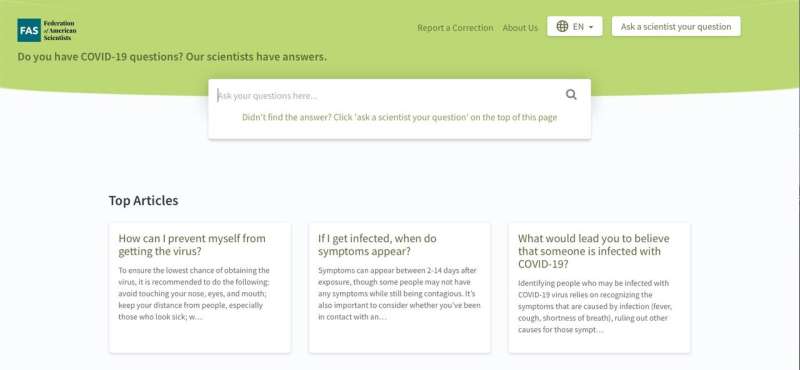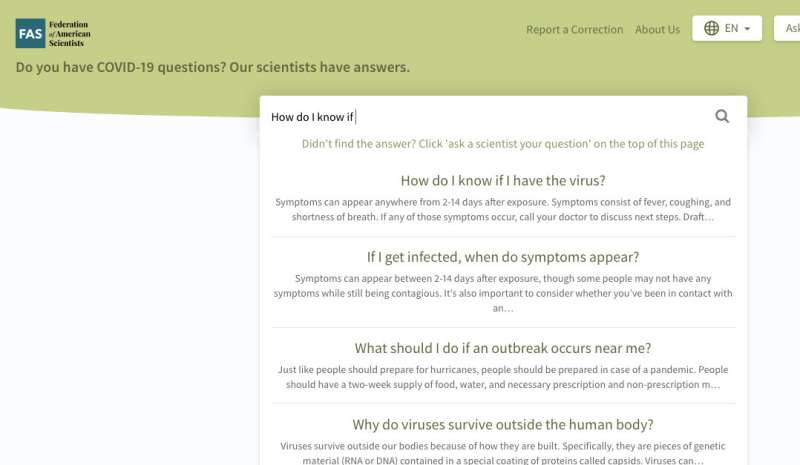Scientists answer coronavirus questions on new website

Unreliable tips on how to protect oneself from the novel coronavirus and fake news about the COVID-19 pandemic are spreading as quickly as the virus itself.
The Governance Lab (The GovLab) at the New York University Tandon School of Engineering has collaborated with the Federation of American Scientists (FAS) and the State of New Jersey Office of Innovation to launch a free, interactive tool aimed at cutting through the noise and presenting clear, scientist-led, and evidence-based information and advice to the public.
Available in English and Spanish, "Ask a Scientist" allows users to find answers to a wide range of commonly asked questions about the virus, the severity of the outbreak, best methods of prevention, and steps to take in the event you fall ill. All posted content is obtained from the World HealthOrganization , the Centers for Disease Control and Prevention, and other rigorously verified sources.
If users do not find an answer to their specific questions, they have the option of submitting them to a team of FAS researchers and a crowdsourced network of vetted science experts led by the National Science Policy Network . Users can expect an answer within an hour, although that timeframe is expected to shorten as the network increases in size. Every answer is reviewed to ensure accuracy andtimeliness, then added to the knowledge base for the benefit of others.

"We are getting all hands on deck and engaging a global volunteer network of scientists, journalists and other experts to lend their know-how to provide rapid and accurate information that will help slow the spread of this disease and mitigate its impact," says Professor Beth Simone Noveck, director of The GovLab and Chief Innovation Officer for the State of New Jersey.
Immediately after going live six days ago, "Ask a Scientist" began attracting some 4,000 users a day, and the collaborating teams are now focused on increasing the robustness of the infrastructure to handle the growing volume of queries, including crowdsourcing translation in a wide variety of languages, such as Portuguese, Farsi, and Malagasy. Many public and private organizations are installing the "Ask a Scientist feature" on their own websites as well.
"Ask a Scientist" will also be live on the Amazon Alexa by the end of the week. Just say "Alexa, Ask a Scientist," followed by a COVID-19 question to access the service by voice.
"Since its inception, The GovLab has been dedicated to serving the public good," says Jelena Kovačevic, dean of the NYU Tandon School of Engineering. "I have watched with pride and admiration as Professor Noveck and her team sprang into action to help disseminate vital information to the public.
As we find ourselves in the uncharted waters of a global pandemic, they are harnessing the power of science, data, and crowdsourcing to help us all navigate through this crisis."



















